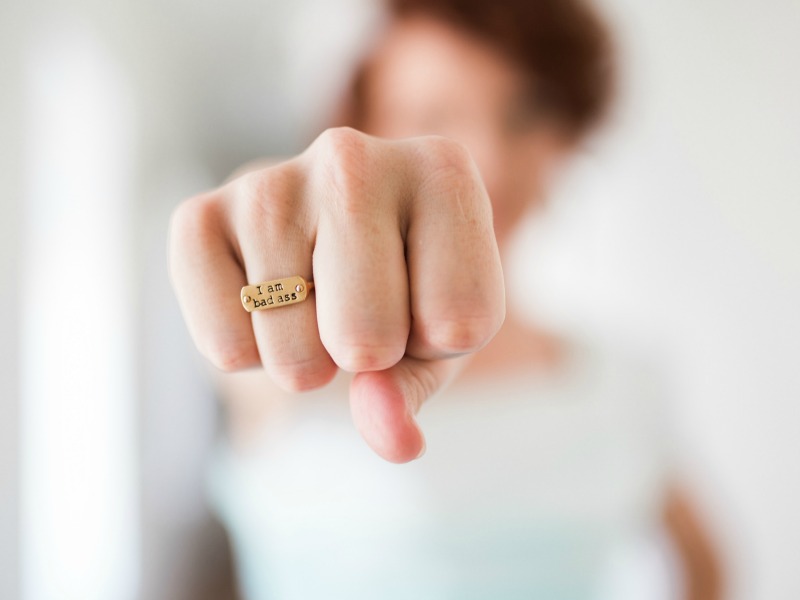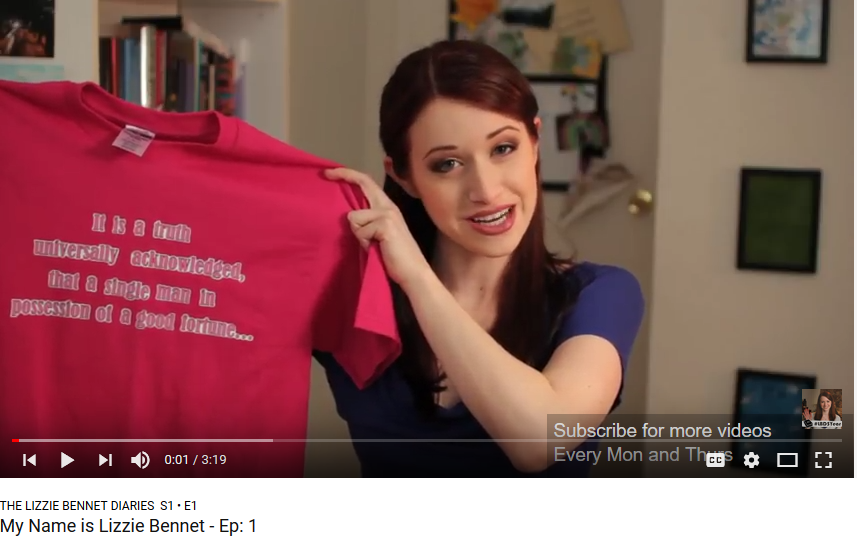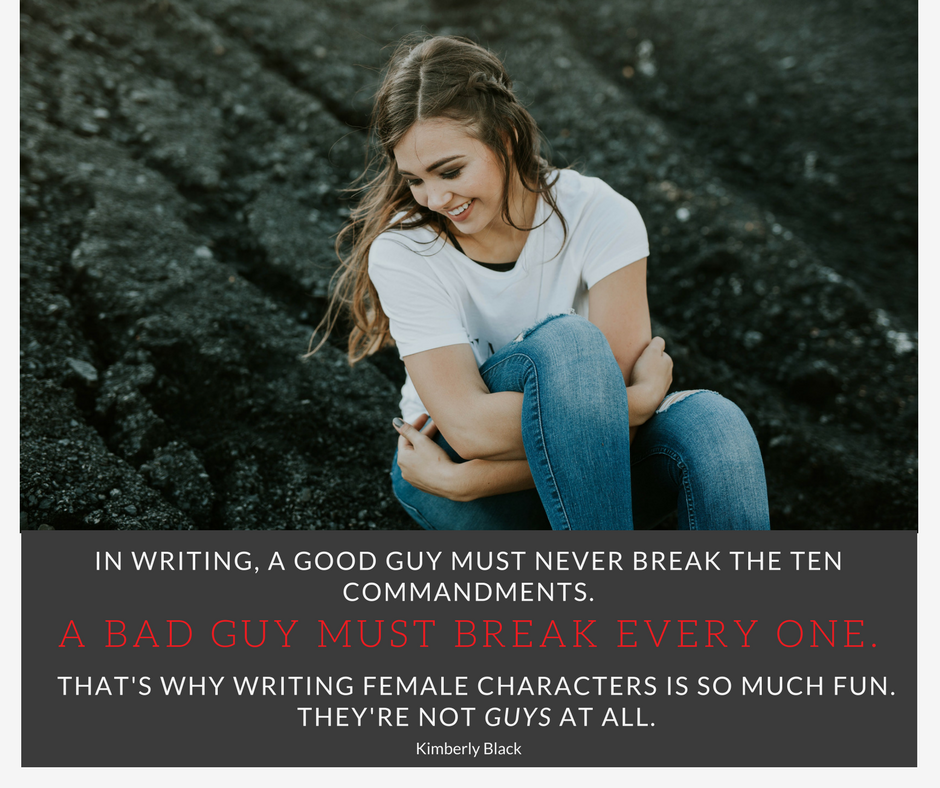
How dynamic and authentic are the female characters in your fiction? How do you know whether they’re strong? Do they have what Chuck Wendig calls “agency” which is the power to influence the story? There are plenty of women in classical literature who were strong, but sometimes it’s hard to pick them out because they’re not strong by today’s contemporary standards.
Consider Jane Eyre. In her day, a woman did not wait to get married, and she certainly didn’t choose to be alone. When she was faced with a moral dilemma (finding out Mr. Rochester was already married), she stood by her convictions knowing what the consequences of that decision would be personally, financially, and socially. Instead of taking the first man who’d have her (remember, she had been told over and over that she was overly plain – so it was possible she might not get another offer), she chose to take a career and live alone. She turned down the opportunity to marry the man who’d given her a job. That’s a strong woman!

Consider Jenny Murray or Claire Fraser of Outlander fame. Jenny is head strong and stubborn which gets her in trouble, but she stands toe to toe with her hot-tempered brother. At the same time, she is careful to be pleasant and swallow her thoughts when men with overwhelming power blow into her life — she’s not stupid. When she goes off with Claire to track Jamie through the woods (a skill she learned by trailing after her older brother as a child), she’s lactating. She had to stop and express milk, what a uniquely feminine problem that she took in stride. Claire Fraser spent the war nursing men on the front lines which was not an easy place to be in any war, and we see her having to deal with PTSD because of those choices, a decision that she wouldn’t change if she could redo that part of her life. She stayed because she had compassion and the skills to help, and stepped into the hard thing.
Lucy Pevensie is a personal favourite (from C.S. Lewis’ Narnia series). Precocious and curious and entirely lovable, she prods her older brothers to speak the truth and make the hard decisions. She stands up for those she cares about even when it will cost her personally to do so. She speaks out even when she knows no one will listen. That’s a different kind of strength, but no less legitimate.

A Quick Checklist:
- Does your female character make a choice that goes against the story’s established “norm” for women?
Think of Jane Eyre, Jo from Little Women, Lisbeth Salander from The Girl Who Kicked The Hornet’s Nest, Hester Prynne The Scarlet Letter. These women all choose to do something/live in an unexpected way for the women in their story worlds. That’s not an easy thing to do.
- Does your female character have integrity or morals she will not compromise on (she won’t cheat, she won’t steal, she won’t torture — you get the idea)?
You don’t need a goody-two-shoes character who never chooses the wrong path or makes a poor decision, but real women who are strong stand up for something. There’s a set of personal rules or morals they will not compromise on. In Laurel K. Hamilton’s Blue Moon, her character Anita Blake has a personal vow never to torture anyone. She ends up forcing herself to do this in the name of the greater good, and it changes her a lot. She has to deal with the personal and social consequences of that and when presented with a similar scenario later in the novel, refuses to compromise.
- How many other women does your female character talk to, socialize with, gain inner strength from?
How many women do you know who live their lives in total isolation from other women? Teenage girls do everything in herds it seems like. Most of the time, if there are only two or three women in a group of men, they tend to stick together. They tend to search out other women in a similar season of life, and they are attracted to mentor figures. Women support each other especially when they are repressed or subjugated — unless you have a plausible explanation otherwise.
- Does your female character continue on a path she knows could bring her personal harm in order to save/rescue/defend someone else she deems more helpless?
That iconic scene from Aliens where Ripley goes back to save the cat comes to mind. It didn’t make strict rational sense, but it made sense to her. Isn’t this a quality readers can get behind and cheer for? I think of the scene from Dragonfly In Amber by Diana Gabaldon, when Claire agrees to sleep with the king in order to get Jamie released from prison. That was an action she rationalized but knew would have personal consequences.
- Does your female character make rational decisions and choices?
The dumb blond who doesn’t know enough to run from danger is a horror movie staple. Does your female character make decisions that are rational or at least rationalized in such a way that a reader can follow? The reader doesn’t have to agree with the decision, but the logic has to make sense. No one knowingly walks into danger without a compelling reason. Smart women make poor choices about men all the time, but those decisions are rationalized to the stars and back. Sometimes we cling to our rose-coloured glasses, but you can’t leave them there. Your strong female character needs a story arc, she needs to learn or grow throughout the story and reach the major setback or climax with the tools to find success, whatever that looks like.
- What uniquely feminine issues does your female character struggle with? (getting her period while away from home without supplies? leaking because she’s lactating?)
Veronica Roth’s Tris is an interesting character. She is a female with little to no athletic skills or experience, but she joins a faction that’s entirely based on physical ability and strength. And Roth pits her against other girls in the same situation, but also guys. And then she’s pitted against guys and girls who have grown up being more physically active and start out much stronger and with proficient skills. Tris spends most of that part of the novel hanging on by her fingernails, which was very realistic. Being female was an obstacle Tris had to overcome simply due to basic physiology. Don’t cheat on things like this.
Some writers say that a female character should be interchangeable with a male character — because they’re both human. I agree that both the male and female characters should be entirely unique and 3-dimensional, but unless you create a story world to explain it away, society does play a part in how women view themselves and their place in the world. This needs to be incorporated into our female character’s point of view.
- Have you given this character a unique-to-her story goal? Is her purpose in the story to support a male character or a male character arc in other words?
Does your female character have a story goal? What’s she trying to accomplish, achieve, overcome through the course of your story? If she exists solely because your male character needs someone to rescue/have sex with, or she’s abused because the male character needs a reason to act… *shakes head* That doesn’t make a female character strong, it makes her story fodder — the red shirt in a Star Trek episode. Readers don’t care for those characters, they cheer on the hero doing the rescuing.
Get this free PDF on Writing Strong Female Characters.
Who are your favourite strong female characters from literature (contemporary or classic)?
Been told you should learn Deep Point Of View? Had an editor or critique partner tell you to “go deeper” with the emotions in your fiction? Looking for a community of writers seeking to create emotional connections with readers? Check out the Free Resource Hub and then join the Going Deeper With Emotions In Fiction Facebook group.